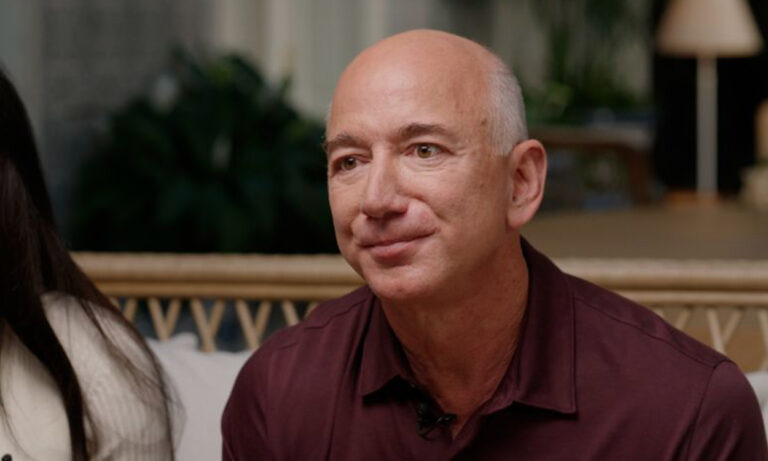Amazon billionaire Jeff Bezos advises people not to buy expensive items ahead of Black Friday 2022
Amazon’s founder, executive chairman and former CEO Jeff Bezos—aka the fourth-richest person in the world, who also was the wealthiest from 2017 to 2021—has recently warned consumers not to go too crazy this Black Friday.
In a sit-down interview with CNN, after being asked if the economy was in a recession, the billionaire stated, “What I can tell you is the economy does not look great right now.” He went on to add that “if we’re not in a recession right now, we’re likely to be in one very soon.”
It was only once Bezos was done with stating the obvious that he felt the need to share his two cents about how people should spend their money ahead of the holiday season. “Take some risk off the table, keep some dry powder on hand. If you’re thinking about buying a large screen TV, maybe slow that down, keep that cash, see what happens,” the American entrepreneur told CNN, his girlfriend Lauren Sanchez sitting beside him.
Now, we can’t carry on without addressing the elephant in the room. With Friday 25 November fast-approaching, Bezos is probably the very last person we’d expect to advise customers to hold onto their wallets. For those of you who might need a gentle reminder of exactly who we’re talking about here, he’s the man who owns and runs the online retailer that dominates Black Friday sales every single year.
Oh, and let’s not forget about the equally lucrative Cyber Monday sale which follows only days later. Let’s just say, he didn’t become a billionaire by helping people secure their savings.
What’s worse is that Bezos’ tone-deaf interview went live only a couple of days after The New York Times revealed that Amazon is planning to lay off 10,000 of its employees—massive cost cuts which are already being implemented by the tech giant.
In other words, as worrying as it sounds, it seems like even Bezos himself is doing some belt-tightening of his own—just not out of his own wallet… In another part of the interview, the billionaire mentioned how he was going to give away his mind-boggling fortune and that he’d be donating $100 million to singer and philanthropist Dolly Parton, which he did, for the latter part at least.
Yep, the probabilities in this economy tell you to batten down the hatches. https://t.co/SwldRdms5v
— Jeff Bezos (@JeffBezos) October 18, 2022
As ironic as this whole situation is—Bezos, a magnanimous altruist?—it should also come as a warning sign for the future of the economy. If Amazon, ahead of its money-making season, is “[battening] down the hatches,” as the founder recommended others do in a tweet, it can’t mean anything good for the rest of us who are already struggling with the cost of living crisis.






